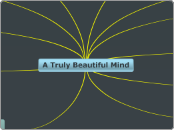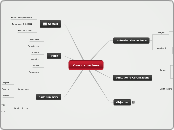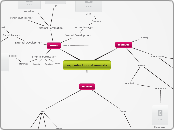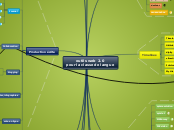Early Childhood Curriculum Chapter 10
Future
Challenge: Meaningful curriculum with foundational skills
for success in later schooling
Need teachers who
Know, understand, and use standards
Are experts on teaching emergent literacy and math
Understand curriculum and take it seriously
Know individuals
Know child development/how children learn
ECE held in higher esteem
Higher expectations
Theories of Development
Constructivist Theory
Differences in theory and philosophy
What is taught today in college not practiced in schools
No Child Left Behind pressures push for test scores/less on development
Second view: Vygotsky
children active in process of development
Child-centered with focus on relationship of adult and child
First view: Jean Piaget
knowledge constructed through thinking about experiences
Taught through direct instruction
Behavior modified through external rewards - important for success
Mechanisms for learning same for all
focuses on "basic" subject matter and school behaviors
founded by Watson and elaborated by Skinner
Roots
1980s Developmentally
Appropriate Practice
Focus on needs and interests of children
Yet challenged by No Child Left Behind Legislation
1960's Programs for Failure Risk Children
Head Start
Gains minimal by completion of primary grades
Project Follow Through
But no reliable assessment tools and families moved often
Waldorf Education and Montessori method
observing and guiding, rather than direct instructiion
stress development of child's body, mind, and spirit
focused on matching curriculum to developmental stages
hands on learning, child-initiated activity
Progressive Education
The Nursery School
Others encouraged self-expression
Some focused on teaching proper habits
Child Development Research
Mitchell:importance of children learnign through direct experience
Controversy Began
K insititutionalized in public schools
If play, ready for first grade?
Goal to improve society through changes in schools
Greater freedom in play, involvement in social life vs. structured activities
Advent of Kindergarten
Used "gifts" - cubes and balls, pebbles, etc
Also used "occupations" - paper weaving, blocks, beads, etc
Program similar to Germany's by Friedrich Froebel
Purpose
Preparation for participation in a democratic society
Progressives
Remedying inustices in our scoiety is another view
Help children become lifelong learners
Explore meaningful content
Efficient acquisition of knolwedge and skills that are deemed
important and lead to success in future schooling/society
Behaviorist Theory
Concerned with behaviors that can be assessed
Preserving cultural values and insights from great works
and disciplines of knowledge
"Traditionalists"
Curriculum should focus on great ideas of basic principles
Integrated Approaches
Reggio Emilia Approach
Project Approach
In-depth investigations by children
Finding answers to questions
Teachers partners in learning
Children represent topic through various means of expression
Developmental Interaction/
Bank Street Approach
Topic of study selected by teacher
Based on teacher knowledge of children/
learning potential of the topic
reconstruct experiences/community trips
Criticism: Superficial connections, not enough material; limited teacher knowledge
Unit/Thematic Approach
Topic selected by teacher as organizing motif for activities over at least a week
Criticism: topics disregard interests of children, little
chance to engage, activities often don't extend understanding
Agreements: teaching the whole child
importance of teachers and children in active role
integrated design for curriculum
Play and teacher-led learning activities planned to reflect a topic
Definition
Everything in the program that children experience, unplanned and planned
Hands on exploration, guided learning, play
Model that guides a program - includes philosophy, teacher role, principles for learning environment, etc
Carefully planned learning environment
Specific activities/lessons for learning/development
Involves teaching the "whole child"









